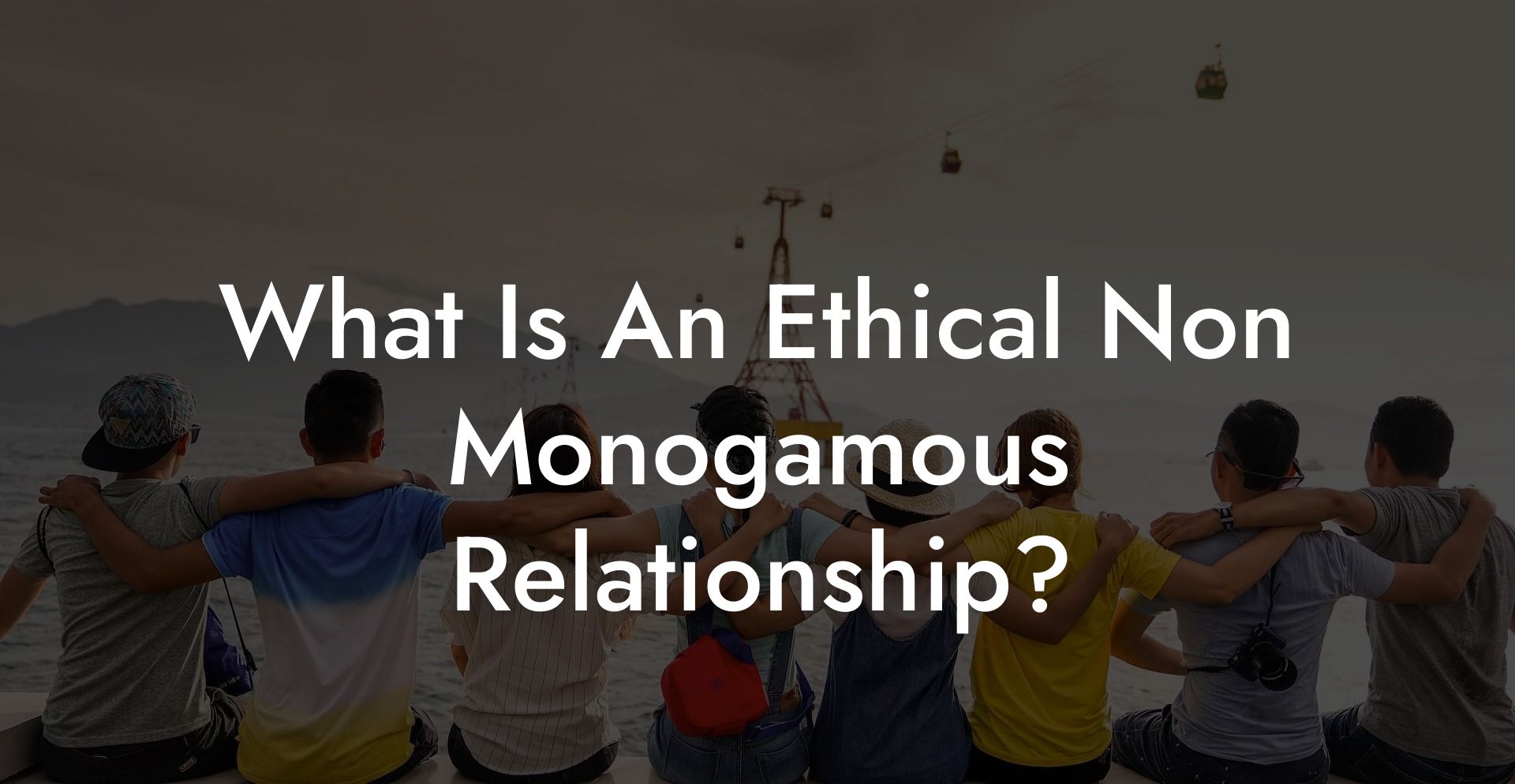In today's dynamic and ever-evolving social landscape, the concept of ethical non-monogamy is gaining traction and sparking curiosity among individuals and couples alike. As traditional monogamous relationships continue to be the societal norm, there is a growing interest in exploring alternative means of connecting and forming relationships based on individual needs and desires. In this article, we will dive into the concept of ethical non-monogamy, what it entails, and examples of how it can manifest. We invite you to join us in understanding this growing movement towards openness and communication in relationships and, if it resonates with you, to share your thoughts and experiences to broaden the conversation.
What Is An Ethical Non Monogamous Relationship Table of Contents
Ethical non-monogamy is the practice of openly engaging in multiple romantic or sexual relationships with various partners, where everyone involved is aware and consents to the dynamics of the connections. The core principles of ethical non-monogamy include honesty, consent, communication, and mutual respect amongst all parties. It is essential to understand that ethical non-monogamy is not synonymous with infidelity, as the primary distinction lies in open communication and consent from everyone involved before pursuing additional relationships outside of the primary partnership.
Ethical non-monogamous relationships can take different forms depending on the preferences and boundaries agreed upon by the individuals involved. Some examples include:
Open Relationships
A committed couple decides to allow each other to have romantic or sexual experiences with other individuals outside of their primary relationship, with specific rules in place. The couple maintains a strong emotional and romantic bond while giving each other the freedom to explore intimate connections with others.
Polyamory
Individuals or couples engage in multiple romantic relationships, where all partners are aware and accepting of the arrangement. Polyamorous relationships can involve a variety of configurations, such as a hierarchical structure where one relationship is considered primary, or a more fluid and egalitarian structure, where all relationships are considered equal.
Swinging
Couples participate in consensual, recreational sexual experiences with other couples or individuals, typically in a social setting. The primary focus of swinging is sexual exploration with multiple partners while maintaining emotional commitment within the primary relationship.
Ethical Non Monogamous Relationship Example
Let's examine a hypothetical example of an ethical non-monogamous arrangement. Sarah and Chris are in a long-term, committed relationship and have recently decided to explore opening up their relationship to include other partners. They have explicit discussions about their boundaries, expectations, and desires for engaging in non-monogamous experiences. They both agree that their emotional connection and commitment to each other will remain the priority, but that they are open to sexual encounters with others as long as there is complete honesty and transparency about any new connections.
Sarah and Chris begin attending local polyamory and swinging events to meet like-minded individuals and couples. Through these events, they form connections with others who also prioritize open communication, honesty, and mutual respect in their relationships. Over time, Sarah and Chris develop friendships and sexual relationships with other people, all while maintaining their primary commitment to one another.
In conclusion, ethical non-monogamy offers a way for individuals and couples to explore their desires and needs outside of traditional monogamous relationships. The emphasis on consent, communication, and understanding between all parties involved encourages healthier and more fulfilling connections. If you found this article insightful and engaging, we invite you to share it with others who may be curious about ethical non-monogamy and invite them to explore the plethora of resources available on The Monogamy Experiment.













